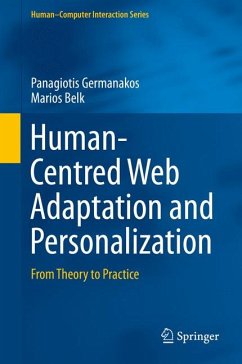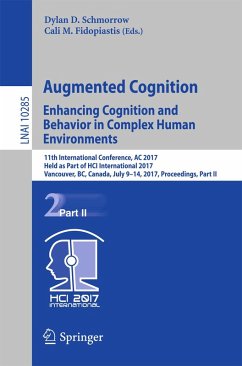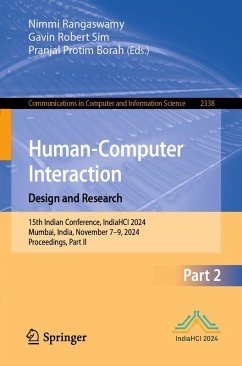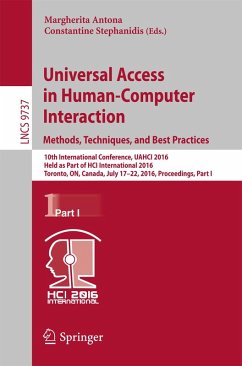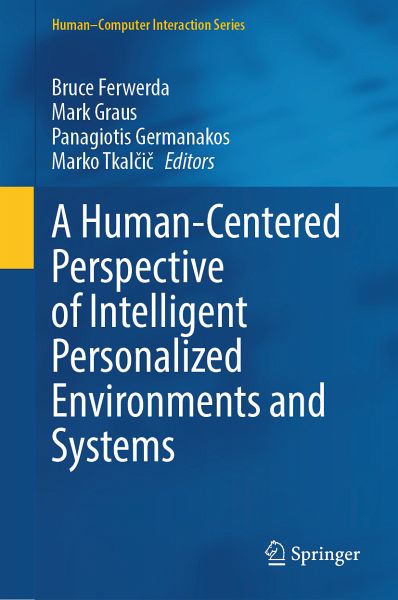
A Human-Centered Perspective of Intelligent Personalized Environments and Systems (eBook, PDF)

PAYBACK Punkte
72 °P sammeln!
This book investigates the potential of combining the more quantitative - data-driven techniques with the more qualitative - theory-driven approaches towards the design of user-centred intelligent systems. It seeks to explore the potential of incorporating factors grounded in psychological theory into adaptive/intelligent routines, mechanisms, technologies and innovations. It highlights models, methods and tools that are emerging from their convergence along with challenges and lessons learned.Special emphasis is placed on promoting original insights and paradigms with respect to latest techno...
This book investigates the potential of combining the more quantitative - data-driven techniques with the more qualitative - theory-driven approaches towards the design of user-centred intelligent systems. It seeks to explore the potential of incorporating factors grounded in psychological theory into adaptive/intelligent routines, mechanisms, technologies and innovations. It highlights models, methods and tools that are emerging from their convergence along with challenges and lessons learned.
Special emphasis is placed on promoting original insights and paradigms with respect to latest technologies, current research trends, and innovation directions, e.g., incorporating variables derived from psychological theory and individual differences in adaptive intelligent systems so as to increase explainability, fairness, and transparency, and decrease bias during interactions while the control remains with the user.
Special emphasis is placed on promoting original insights and paradigms with respect to latest technologies, current research trends, and innovation directions, e.g., incorporating variables derived from psychological theory and individual differences in adaptive intelligent systems so as to increase explainability, fairness, and transparency, and decrease bias during interactions while the control remains with the user.
Dieser Download kann aus rechtlichen Gründen nur mit Rechnungsadresse in A, B, BG, CY, CZ, D, DK, EW, E, FIN, F, GR, HR, H, IRL, I, LT, L, LR, M, NL, PL, P, R, S, SLO, SK ausgeliefert werden.



